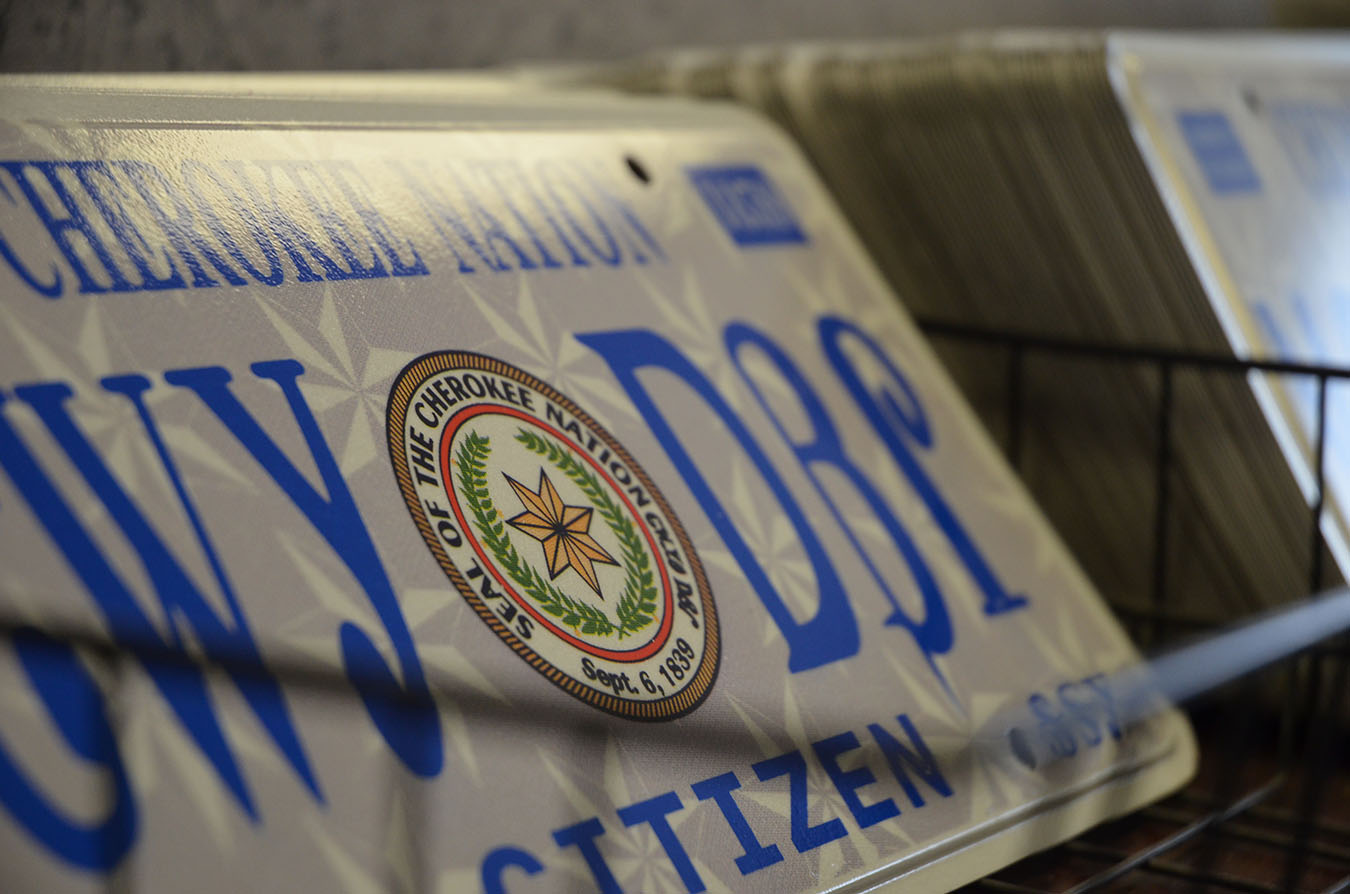TAHLEQUAH, Okla.— Today the state of Oklahoma and Cherokee Nation announced a tentative agreement to amend and extend their motor vehicle tag compact, successfully reaching a deal that benefits both Cherokee Nation citizens and Oklahomans alike.
The agreement remains tentative pending the approval of the Council of the Cherokee Nation and the Oklahoma Legislature’s Joint Committee on State-Tribal Relations, which are expected before the end of the year.
“Our goal throughout this process has been a compact that continues to benefit Cherokee Nation citizens, Oklahoma communities, and ensures our tribe continues to serve and provide for our citizens,” said Cherokee Nation Principal Chief Chuck Hoskin Jr. “The new compact is a government-to-government agreement that will protect the rights of our citizens and ensure we can continue to provide essential funding for public schools, roads, and law enforcement agencies. I am grateful for the good faith negotiations from our partners in Oklahoma and the support of the Cherokee people for this fundamental exercise of our self-determination and government interests.”
"We’re all Oklahomans and we all drive on the same roads and bridges. It’s important that we’re all contributing to the things that make us a top ten state,” said Gov. Stitt. “I appreciate the cooperation of Cherokee leadership to reach an agreement, especially as it pertains to the ability to collect tolls on our turnpikes.”
The 10-year tentative Cherokee Nation and state of Oklahoma Motor Vehicle Tag Compact proposes to include the following provisions:
-
- Cherokee Nation continues to operate its seven tag offices for tribal citizens to purchase Cherokee Nation tags. Cherokee Nation citizens who live outside the Cherokee Nation will have the flexibility to utilize state tag offices or Cherokee Nation tag offices, although they will be subject to payment of fees and taxes provided by the Compact.
- Cherokee Nation will share driver information for PlatePay billing and easy accessibility by law enforcement. As part of the compact agreement, the Cherokee Nation will pay a $2 million PlatePay fee over a three-year period and all outstanding toll fees assessed through November 30, 2024, for Cherokee plates will be waived in exchange.
- Consistent with the previous compact, Cherokee Nation will continue to upload registration information to OLETS for public safety purposes.
- The five counties with portions outside the Cherokee Nation (Tulsa, Wagoner, Rogers, Muskogee, and Mayes counties)—commonly known as the expanded jurisdiction—will move from the previous compact model to the new at-large model. Over the next four years, all at-large vehicles tagged under the previous compact will be exempt from Oklahoma renewal requirements and can continue to register with the Cherokee Nation. Following this period, at-large Cherokee citizens will have the option to renew at a state tag office or at a Cherokee Nation tag office.
- Additional funds Oklahoma secures from taxes and fees associated with vehicles principally garaged outside the Cherokee Nation will be expended consistent with Oklahoma law for infrastructure, education, and other public purposes. The Cherokee Nation will continue to receive a remittance from at-large tag sales and related rebates.
- The Cherokee Nation will continue to allocate funds each year from the sales of Cherokee Nation car tags for public schools, road improvements, and law enforcement, as more specifically outlined in the compact.
- Cherokee Nation continues to operate its seven tag offices for tribal citizens to purchase Cherokee Nation tags. Cherokee Nation citizens who live outside the Cherokee Nation will have the flexibility to utilize state tag offices or Cherokee Nation tag offices, although they will be subject to payment of fees and taxes provided by the Compact.
As with previous motor vehicle compacts, the term of the tentative agreement will be 10 years and will take effect on January 1, 2025.

